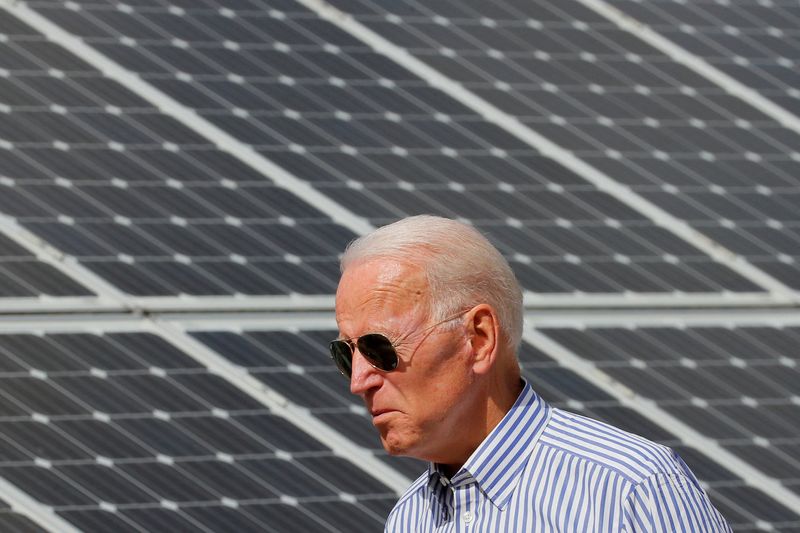By Nichola Groom
(Reuters) - Suniva, the U.S. solar manufacturer that successfully fought for tariffs on cheap panels made overseas, will restart its Georgia cell factory next year thanks to incentives in President Joe Biden's landmark climate law, the company's president said in an interview.
The company is the latest to commit to new U.S. solar production capacity since passage last year of the Inflation Reduction Act (IRA), which subsidizes domestic manufacturing of clean energy equipment.
"Solar cells can succeed in this market. We're proving that and we're coming back in a major way very, very quickly," Matt Card, Suniva's president, told Reuters last week.
The news is a long-awaited milestone for a manufacturer that six years ago filed for bankruptcy and sought trade remedies as a cure for its inability to compete with low-priced imports, primarily from China.
Suniva will begin producing solar cells, the building blocks of solar panels, at its Norcross, Georgia, facility in the spring of next year, the company said.
It will have an initial production capacity of 1 gigawatt per year, enough to power about 173,000 homes, with plans to expand. The factory's first phase will create up to 240 jobs.
Card said Suniva is in "advanced negotiations" with several potential customers and expects to have most of its supply contracted before the factory opens next year.
The company received a $110 million financing commitment from New York investment fund Orion Infrastructure Capital (OIC) earlier this year for its expansion. OIC also committed capital this year to Canadian solar manufacturer Heliene for a new U.S. cell and panel factory in Minnesota.
Suniva has been owned by New York investment firm Lion Point Capital since it exited bankruptcy in 2019.
The tariffs imposed by the Trump administration in 2018 in response to Suniva's petition are opposed by solar project developers who argue they have slowed the growth of an industry critical to meeting the nation's climate goals and have failed to adequately support domestic producers. The tariffs were extended but eased somewhat by Biden last year.
Suniva's Card said the tariffs have helped U.S. panel production over the last five years.
But he credits subsidies contained in the IRA for finally enabling Suniva to produce solar cells again.
Projects using panels containing domestically-produced cells will be able to qualify for an IRA tax credit worth 10% of a facility's cost for using American-made equipment. That "bonus" would be on top of a 30% tax credit for renewable energy facilities.
There is no existing supply of U.S.-made solar cells, and manufacturers like Suniva have said that requiring cells to be made in America is key to producing goods that today are almost exclusively made in China.

"This announcement shows the Inflation Reduction Act's power in writing a new chapter for the American solar industry," said John Podesta, a White House senior advisor on clean energy policy. "After closing during the last administration, Bidenomics is bringing this plant back to life."
Italy's Enel (BIT:ENEI) and South Korea's Hanwha have also announced plans to set up solar cell manufacturing in the U.S. in recent months.